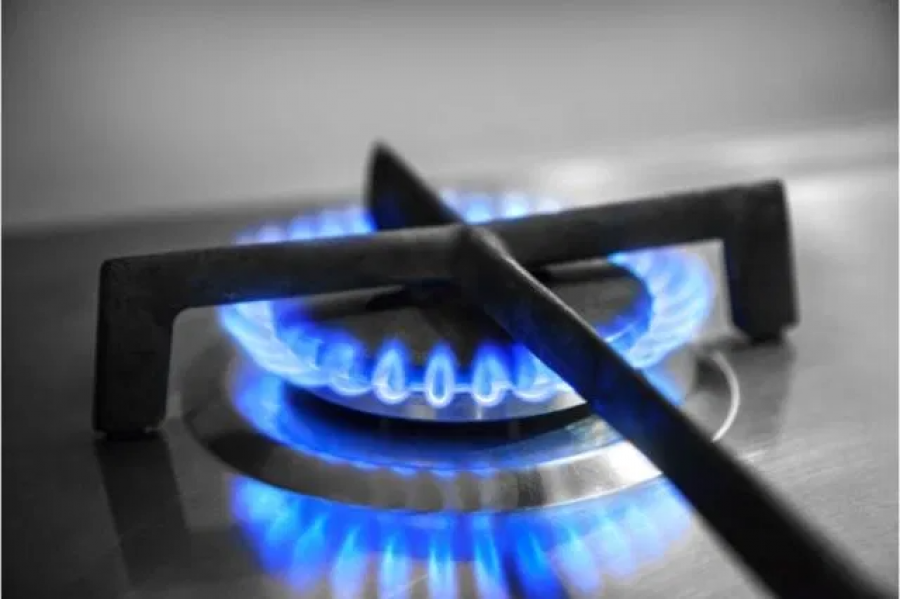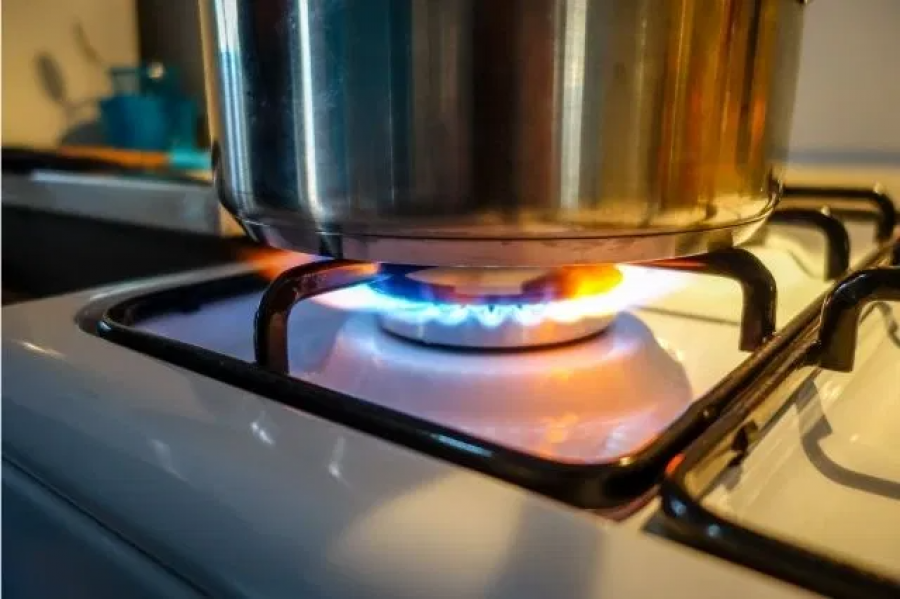Has your old reliable stove broken down? Or maybe you’re remodeling your kitchen?
One decision you will have to make is what type of stove is right for you.
There are two main options for most people: A gas or electric stove.
It’s a dilemma that many have had to face when shopping for new kitchen appliances.
Which is more cost-effective? Will an electric stove fit right with the house specifications?
All that and more will dictate your final choice.
To help you make an informed decision on the topic, we have prepared the following article.
Gas or Electric Stove: What’s the difference?
The main difference between gas and electric stoves is in regard to operation.
Let’s start with the electric stove. The difference in operation also has an effect on other considerations such as safety, maintenance and durability.
Ignition and operation

An electric stove is characterized by the lack of a flame. When the stove is turned on, electricity runs through the coils, heating them up.
As a result, the stoves heat up more slowly. Even when shut off, the burner will take a few minutes to cool down.
In the market, you will find two types of electric stoves:
- Exposed coils, where the electric coils are positioned visibly on the surface of the cooktop.
- Smooth top, where the coils sit beneath the glass or ceramic cover. This is the more aesthetically pleasing of the two.
In contrast, gas stoves operate using an electronic ignition system or through a pilot light.
For the former option, you will hear clicking that produces sparks. The sparks ignite the gas, turning the burner on.
The pilot light is a small flame that is constantly maintained by the range. Turning on the burner opens the valve, leading to a full ignition.
User Preference
Gas stoves or gas ranges are considered the more traditional of the two. This probably has something to do with the method of ignition mentioned above.
That’s why you will see many chefs, cooking shows and older homes using gas stoves over electric ones.
In terms of appearance, the electric stove has a flat-top surface.
It is the right fit for the homeowner looking for a more modern look. Such stoves are often preferred by rental properties and apartments.
Installation for an Electric Stove vs Gas Stove
One of the main considerations when it comes to a gas stove is the availability of a gas line.
There are two solutions to this issue: Either hire a gas fitter to run a line to the mains or use bottled gas.
Depending on the situation, this can take something from hours to days. Of course, you also need to consider the additional cost of installation services.
You will rarely need an electrician to install an electric stove.
The installation is simple and fairly straightforward. Most homes are already installed with 220V output suitable for electric stoves or electric ranges. Within an hour, you could have some food simmering on your cooker.

Durability
Electric ranges tend to last a few years fewer than their gas counterparts, because the mechanical components in electric stoves wear out faster.
As mentioned earlier, modern electric stoves have glass or ceramic tops. Such tops can shatter if a heavy object falls on them. If cold water is splashed on a hot surface, the sudden contraction can also lead to the surface shattering. You’ll also have to worry about scratches and stains.
Owners of gas stoves have it easier. Gas ranges have fewer maintenance issues to worry about, and most models have an easy-to-maintain surface.
Pros and Cons of Gas Stoves
Benefits of a Gas Stove
- More economical. In most states across the US, gas is cheaper than electricity. Large families can make quite the savings over the lifespan of their stove.
- This type of range works better with different types of pans .
- Heats up instantly when ignited.
- There is less risk of being burned once you have turned off the burner.
- Works even during a power outage.
Cons of a Gas Stove
- Sometimes, the burner won’t ignite the gas.
- Prone to gas leakage and accidental fires. Always hire the services of a professional gas fitter.
- Not all homes have a connection to gas mains.
- Difficult to clean. The grates need to be removed and scrubbed separately.
Pros and Cons of Electric Stoves
Benefits of an Electric Stove
- The heat from an electric stove is more contained, keeping the kitchen cooler.
- The flat-top surface makes it easier to clean if there are any spills.
- Electric stoves are recommended to amateur or young cooks. Their flat cooking surfaces make them a more stable option.
- A sleek and stylish appearance. The modern stoves have a glass/ ceramic worktop.
- There is no associated risk with gas leaks or combustion issues.
- When it comes to baking, an electric range or oven has the advantage. It heats up consistently and maintains a constant heat for your cake or roasted chicken.
- Easy to find cookware for an electric stove
Cons of Electric Stoves
- Generally, an electric stove will consume more energy than a gas stove.
- In addition, the more advanced the electric stove, the more electricity it consumes.
- Your cooking will come to a halt if the power goes out.
- Electric stoves take a while to heat up and also to cool down. This is a safety issue. The burner may look cool to touch, but actually, still be very hot. Also, this can lead to overcooking.

Gas and Electric Stoves: Frequently Asked Questions
Do electric stoves use gas?
No, Electric stoves only use electricity.
Does a gas stove need electricity?
No, a gas stove does not need electricity in order to operate.
How to tell if the stove is gas or electric?
The easiest way is by their appearance. Electric stoves can be identified by a set of coils through which electricity is passed. A gas stove has grates on the cooktop surface.
Do chefs prefer gas or electric stoves?
Chefs prefer using gas stoves over electric stoves. Chefs work in fast and stressful work environments, so they need a stove that responds immediately.
Is a gas stove cheaper to run than electric?
Putting aside the purchase price, gas stoves are cheaper. Gas stove energy consumption is lower, while an electric strove will substantially add to your energy bills.
What is the price difference between gas and electric stoves?
A gas stove is cheaper to purchase. Gas stoves retail from about $400 to $2,500 while the costs of electric stoves range between $400 to $ 6,000.
Are gas stoves safe? Are electric stoves safer than gas?
Gas stoves have a history of gas leaks. You might need to install a gas leak detector. There is also the issue of the open flame.
You must keep flammables away and have adequate ventilation. However, modern gas stoves are installed with systems and safety features that can detect such issues.
Conclusion: Electric Stove or Gas Stove?
Like other appliances in a home, making that final choice requires a bit of examination.
Both stoves have their pros and cons, giving one an advantage over the other depending on the criteria.
In the long run, it comes down to a number of factors such as your needs as a family, frequency and style of cooking, and the availability of a gas main.
In this debate of gas vs electric stoves, what might tip the balance in the favor of one is the higher cost of purchase and higher energy costs of the electric stove.
However, as the owner, you should also consider your lifestyle to help you make a decision that suits you.